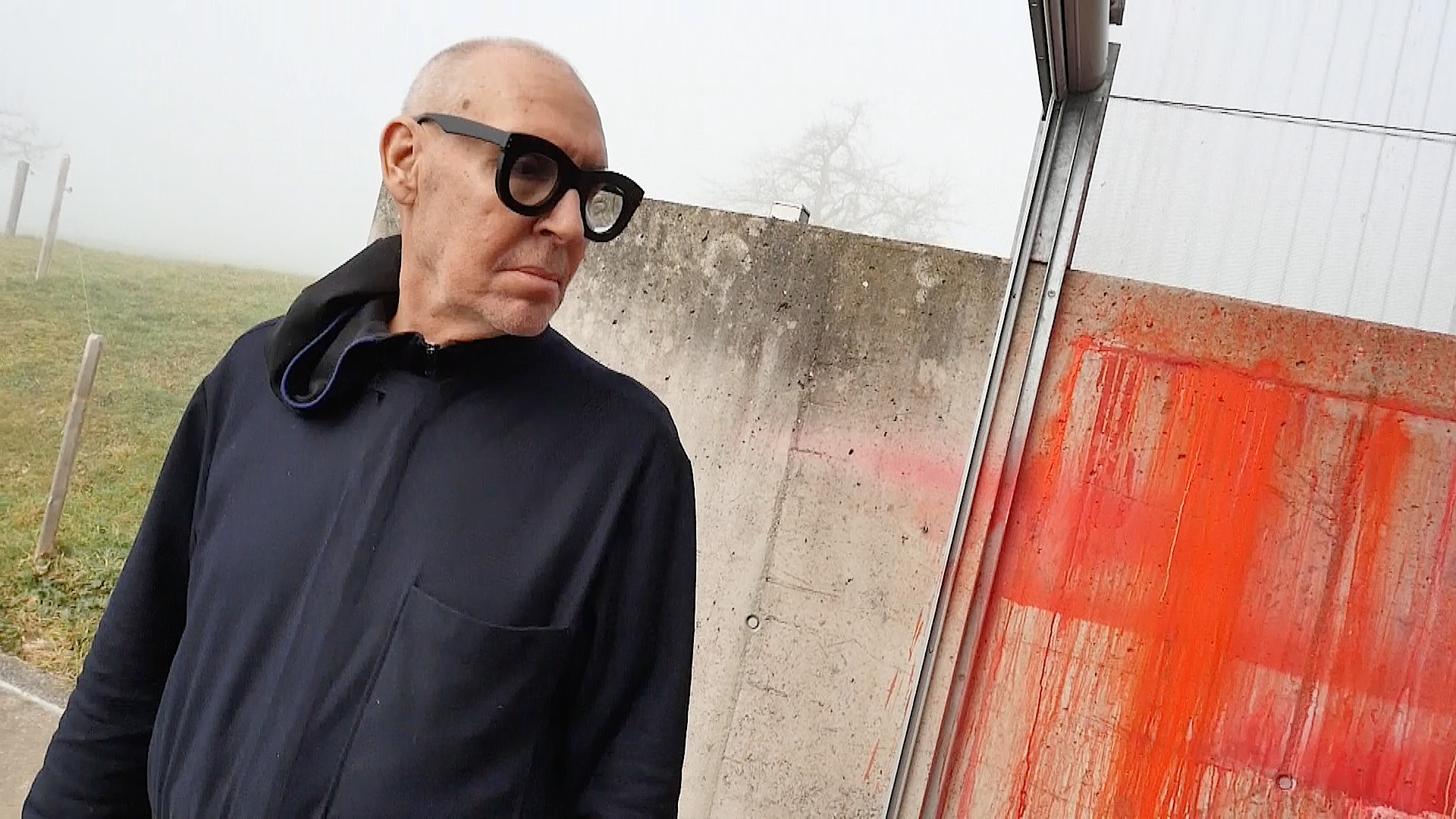Swiss artist Michel Comte embraces adversity and activism

Michel Comte was one of the most celebrated fashion photographers until an accident damaged his eyesight. He then found a passion for cinema and using art to raise awareness of the climate crisis.
Comte, who was born in Zurich in 1954, has no intention of sitting on his laurels. “I never really liked the idea of having an easy life,” he told SWI swissinfo.ch in his studio.
As one of the most celebrated fashion photographers of the past 50 years, Comte designed magazine covers and advertising campaigns for luxury brands such as Ferré, Dolce&Gabbana, Armani and Versace. He was also beloved by models and actresses all over the world. His portraits were more than mere photographs but rather captured the spiritual essence of his subjects.
Comte stayed grounded and connected to social issues, working as a photographer for war-torn countries for 12 years, visiting Iraq, Afghanistan, Bosnia, Sudan and Cambodia for the Geneva-based International Committee of the Red Cross.
His life changed in 2010 after a serious accident in Los Angeles, where he was living at the time. This severely damaged his eyesight, forcing him to stop working as a photographer. He turned to cinema and embraced his passion for raising awareness of social issues including the climate crisis and melting glaciers.
This passion for the environment runs in his veins. His grandfather was a Swiss pilot and was the first to fly over the Alpine glaciers to document their state.
His first feature film, The Girl from Nagasaki, retelling the story of the opera Madame Butterfly, was screened at the Sundance Film Festival in 2014. He also developed a strong interest in contemporary art, paintings, sculptures and art installations.
For more than six years Comte, who now lives in Switzerland, has been working on a massive land-art installation called The Centre of the World, located in the desert in Turkey on the border with Syria. The area is known for the Göbekli Tepe ruins, a site dating back to the early Neolithic period, where archaeologists found the oldest example of a stone temple, built more than 11,600 years ago.
The recent deadly earthquake had its epicentre right next to the site, destroying all of the installation. Comte says he suffered a lot from this, but he isn’t giving up, continuing to work on new works and installations.

In compliance with the JTI standards
More: SWI swissinfo.ch certified by the Journalism Trust Initiative














You can find an overview of ongoing debates with our journalists here . Please join us!
If you want to start a conversation about a topic raised in this article or want to report factual errors, email us at english@swissinfo.ch.